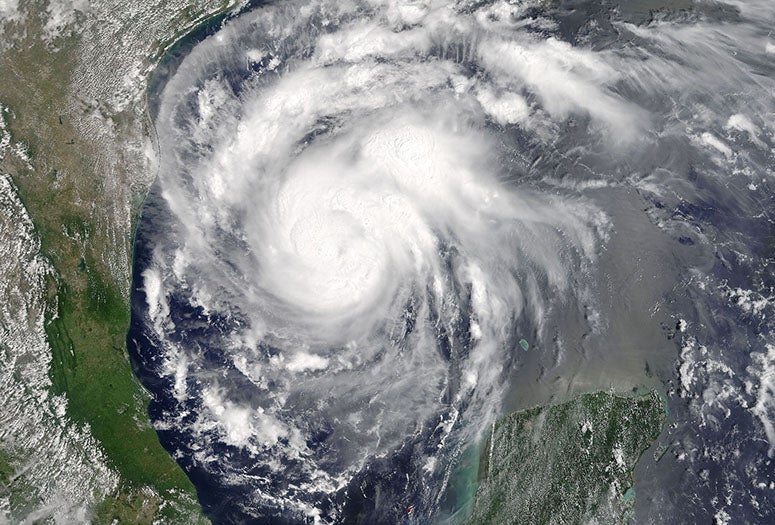Hurricane Harvey ravaged the Houston area three years ago, but as another major storm threatens the upper Texas coast, a new report from the Texas Flood Registry shows the 2017 disaster's lasting impact is felt more strongly than that of subsequent storms, including Tropical Storm Imelda.
The report shows survey respondents suffered greater exposure to flooding, property damage and lost income from 2017's Harvey than 2019's Imelda and the May 2019 storms (May 7-10, with torrential rain and flooding). Forty-four percent of registrants reported home flooding during Harvey, compared with 15% and 4% due to Imelda and the May 2019 storms, respectively. More respondents reported income loss than home flooding from Imelda and the May 2019 storms.
The report also indicates Harvey created more physical health problems than the other storms, causing more headaches, migraines, skin rashes and shortness of breath. Sixty-three percent reported at least one symptom due to Harvey compared with 9% reporting symptoms due to Imelda. The results suggest the physical health impacts of Harvey affected people whether or not they suffered flooding. Of registrants reporting no flooding during Harvey, 55% reported at least one symptom, compared with 7% for Imelda.
Harvey not only continues causing mental health problems three years later, it also exacerbates mental health problems when subsequent storms hit. Of the 20% reporting depression, anxiety, sleep trouble, memory problems or changes in behavior because of the May 2019 storms, 91% report they were related to memories of what happened during Harvey. Of the 30% reporting mental or emotional changes due to Imelda, 78% report they were related to Harvey. Questionnaire responses indicate 25% of the people surveyed reported Harvey caused mental health issues severe enough to alter their ability to function.
"Harvey continues to have a strong impact on the mental health of registrants," said Katherine Ensor, the Noah G. Harding Professor of Statistics and member of the registry leadership team. "These latest findings demonstrate the lasting impact of Harvey on many of our respondents."
The researchers hope the survey will continue answering questions about how future storms will affect the lives of Texans. They also hope the registry will inform public health solutions and storm planning, as well as help people recover from future storms.
"This direct measurement of the mental health related to high-impact storms in our community will assist local health departments in appropriately targeting resources to assist our residents," Ensor said.
Since the project launched in 2018, 20,067 registrants have shared their storm experiences, with approximately 20% completing more than one survey. As of April 1, there were 19,993 responses to the Harvey survey, 3,559 responses to the May 2019 storms survey and 1,402 responses to the Imelda survey. On average, these registrants represent three-person households, capturing the storm experiences of more than 60,000 residents in the region.
The Texas Flood Registry is a joint venture of Chambers County, the Corpus Christi-Nueces County Public Health District, the Environmental Defense Fund, Fort Bend County Health and Human Services, Harris County Public Health, the Houston Health Department, Montgomery County, the Texas Parks and Wildlife Department, Victoria Emergency Management, Rice University and University of Notre Dame. The report is also available in Spanish and is accessible online at https://floodregistry.rice.edu/.

